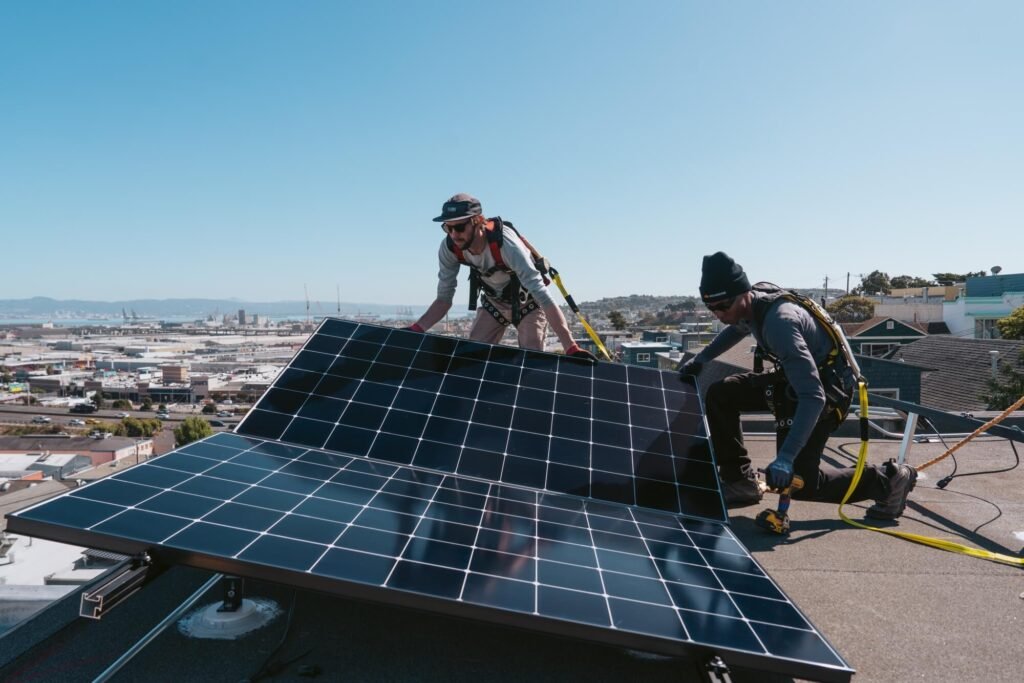In the wake of the European Union’s recent commitment to accelerate the global phase-out of most fossil fuels well before 2050, Shell Plc has entered into a 27-year agreement to purchase liquefied natural gas (LNG) from Qatar for the Netherlands. This move is not unique, as France’s TotalEnergies SE also signed a similar long-term contract last week. These agreements shed light on the difficulties faced in reconciling the EU’s aspiration to achieve climate neutrality by 2050 with the imperative to ensure energy security, especially in the aftermath of last year’s significant energy crisis.
Christian Egenhofer, a senior researcher at the Centre for European Policy Studies, remarked, “Energy companies appear to be wagering that Europe’s gas demand will outstrip politicians’ projections.”
While Europe has made considerable progress in reducing its reliance on inexpensive Russian gas imports, primarily by switching to LNG from sources like the United States and Qatar, transitioning to cleaner energy sources has proven challenging. Governments across the region have prioritized expanding renewable energy sources, emphasizing the need for independent and environmentally friendly energy sources, particularly after Russia’s invasion of Ukraine.
However, high borrowing costs and uncertainties surrounding the commercial viability of certain technologies have hampered investments and raised doubts about Europe’s ability to achieve its climate objectives. The EU has set a binding target to reduce greenhouse gas emissions by at least 55% by 2030 compared to 1990 levels, with the ultimate goal of achieving net-zero emissions by the mid-century.
On Monday, the EU officially endorsed the global phase-out of “unabated” fossil fuels, stipulating that countries could only use coal, gas, and oil if they employed emission-reduction technologies such as carbon capture and storage. These technologies are currently not widely implemented, and this condition will be part of the EU’s negotiating position at the upcoming United Nations COP28 climate summit in Dubai.

EU energy and climate spokesman Tim McPhie clarified, “Long-term gas supply contracts between producers and market participants do not bind the EU to natural gas dependence since they do not necessarily mandate domestic consumption.”
Under the two long-term agreements signed with Shell, QatarEnergy will supply up to 3.5 million tons of LNG annually to Rotterdam’s Gate import terminal for a period of 27 years, with the same quantity also heading to France. France recently revived a supply agreement with a U.S. producer, reversing its decision from 2020.
While private companies currently face no legal restrictions on signing long-term contracts, some EU diplomats express concerns that these deals indicate a rosy future for gas despite the EU’s focus on renewables. Others argue that such deals could pose risks for the companies involved if the transition to cleaner energy proves successful.
Matthias Buck, Director Europe at Agora Energiewende, stated, “Private investments into fossil gas deliveries beyond mid-century are at risk of becoming stranded, especially with questions surrounding the future availability and costs of carbon capture and storage.”
Qatar, on the other hand, is capitalizing on growing energy security concerns to secure more long-term deals. The country has invested heavily to increase its output by 64% by 2027. European companies, initially hesitant to commit to long-term deals, are now investing in key Qatari LNG projects, as is Italy’s Eni SpA, although it has yet to announce a similar agreement.
It is possible that these agreements have been made just in time, as the EU is actively seeking to ban contracts for the supply of unabated fossil fuels that extend beyond 2049. The final shape of the draft law, which is currently under negotiation by member states and the European Parliament, is expected to be decided later this year.
Some European energy companies, in consideration of the region’s climate goals, are unwilling to enter into such long-term contracts. According to a spokesperson from Germany’s Uniper, they are not prepared to commit to supply contracts lasting until 2050.
EU policymakers acknowledge that certain energy-intensive industries may require fossil fuels for an extended period, provided that emission-reduction technologies are employed. However, they stress that these exceptions should not hinder progress toward climate action where effective alternatives are available.
There are signs that European buyers are beginning to embrace cleaner alternatives. Woodside Energy Group Ltd Chief Executive Officer Meg O’Neill noted that while long-term gas contracts are still being pursued, there is a growing interest in other fuels for the future, including hydrogen, ammonia, and carbon capture and storage.
Nonetheless, the need to secure energy supplies remains a pressing concern, as renewables are not yet capable of fully meeting the demand, according to Peter Clarke, Senior Vice President of Global LNG at ExxonMobil Corp.
“One lesson I hope we have learned from the current geopolitical crisis is that ensuring adequate energy supply and security is essential to meeting our energy needs,” Clarke emphasized during the Energy Intelligence Forum in London. “While we cannot predict the future, we can certainly prepare for challenging times.”




